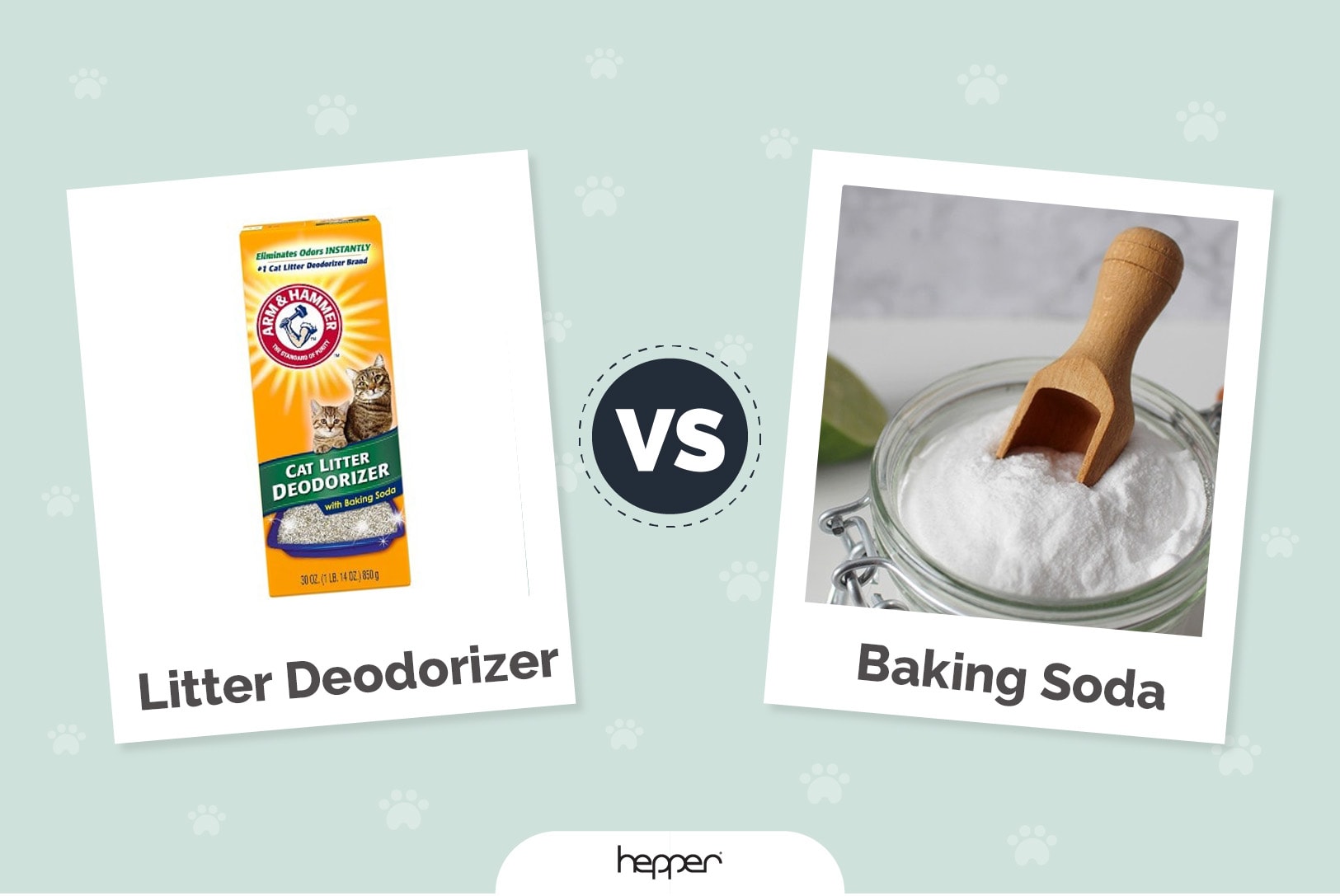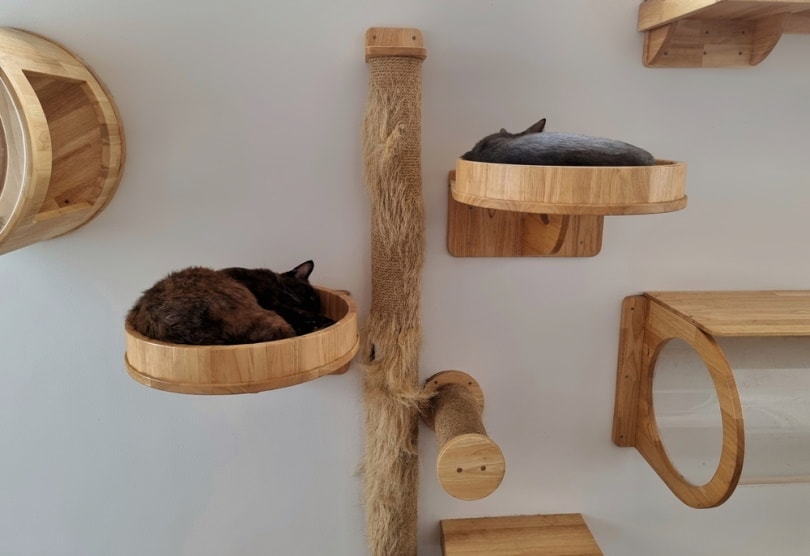Why Do Cats Growl? 5 Vet-Reviewed Reasons for This Behavior

Updated on
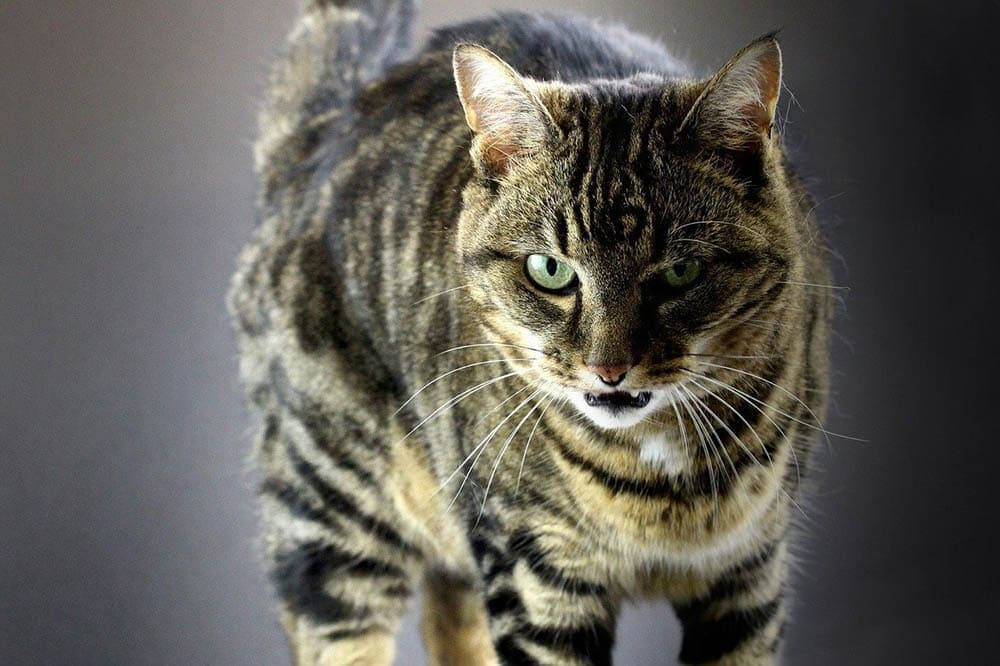
As all cat owners know, cats can make a surprising variety of different sounds, some of which can be downright frightening! Growling is one of the most fear-inducing sounds because when it happens, it’s abundantly clear that your cat is unhappy about something. This may sound similar to a dog growling, but it can quickly escalate into hissing, a sure sign that your cat wants you and everyone else to stay away.
There are various reasons for cats growling, but all of them are warning signs that your cat wants to be alone. In this article, we look at what these reasons are and why it’s best to steer clear when your cat is making this sound. Let’s dive in!
Top 5 Reasons Cat Growl:
1. Giving a Warning
Growling is a warning sign from your cat to back off. This sound, accompanied by bristled fur, ears held back, bared teeth, and an erect tail, is a sure sign that your cat is upset about something. This could be your cat protecting their territory from other cats or pets, or it may simply mean that they need personal space. Growling and hissing are warning signs that your cat is feeling threatened, and it’s best to leave them alone rather than attempt to touch or pet them.
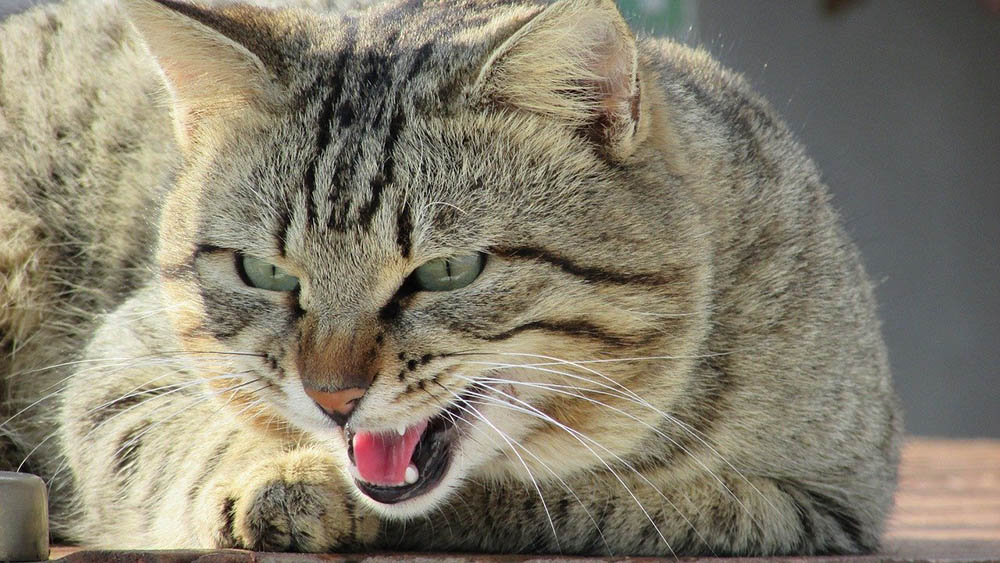
2. Anger and Aggression
The scariest type of cat is an angry one, and it’s best to stay far away when your cat is angry. When your cat is in this state, they can be exceedingly unpredictable and may attack at any time. Growling, in this case, is a warning sign, and they will growl when they feel angry or aggressive toward another cat in their territory or even another human.
- See also: Do Cats Hold Grudges?
3. Dominance
Cats are highly territorial, and their growling may come simply from asserting their dominance toward another cat in their space. This is abundantly apparent when you introduce a new cat into the home or when there is a stray around, as this sudden new addition may be seen as an immediate threat from your cat’s perspective. Growling is your cat’s way of letting other cats know not to come any closer!
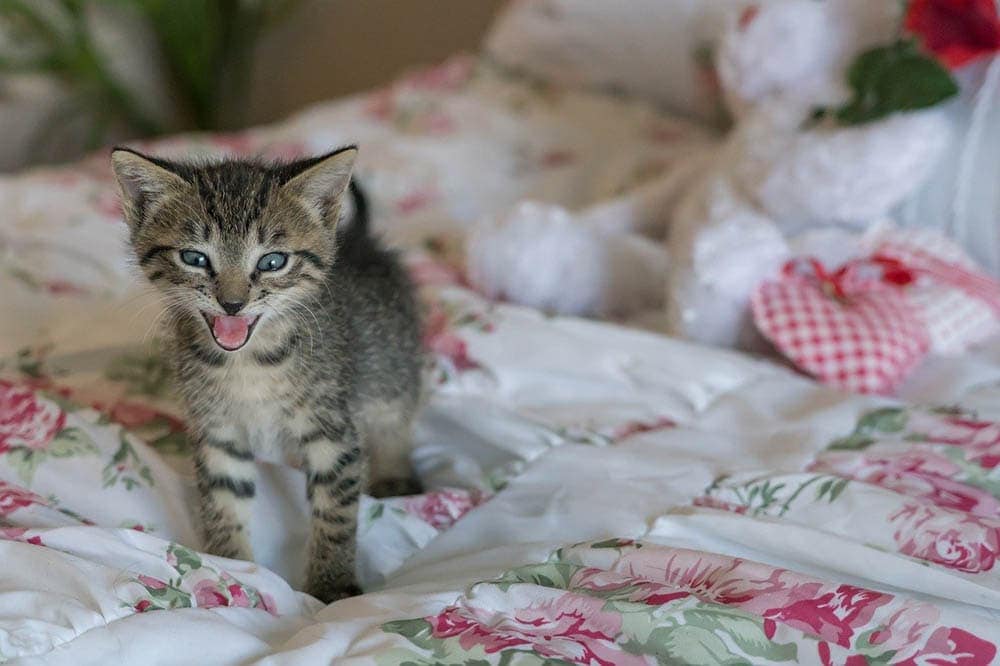
4. Fear
Dominance and anger are not the only reasons that cats growl, as fear and stress can also cause them to growl. An unfamiliar environment, a new face, or a strange cat in the home can all cause fear, stress, and uncertainty in your cat, causing them to growl and hiss. Females with kittens will also easily feel threatened and growl in defense of their litter. This growling is unlikely to end in aggressive behavior because your cat is more in a defensive state of mind, but if pushed, they may certainly retaliate.
5. Pain and Illness
Physical ailments, injuries, or diseases can cause your cat pain and discomfort and may cause them to growl at times. If your cat is growling for seemingly no reason—there are no other cats around—they may simply be in pain or feeling unwell. This could be anything from a sore tooth to something far more serious, so a trip to the vet is the best course of action.
What Should You Do if Your Cat Is Growling?
If your cat is growling, it’s best to heed their warning and stay away. If you push further after your cat has begun growling, it’s possible that the situation may escalate into hissing, scratching, or biting, particularly if the cat feels threatened or cornered, and it’s best to take the hint before injuries happen. Of course, if there is another cat or a dog around, you’ll need to remove either them or your cat from the situation, and if it happens to be one of your own pets, you’ll need to take the situation seriously and try to socialize your pets gradually and properly.
Your cat may simply not be in the mood for petting or being picked up; like us, sometimes they just enjoy their alone time. Lastly, check your cat’s behavior for other signs, like a lack of appetite, limping, or lethargy, as their growling may then be a sign of illness or injury.
Final Thoughts
In almost all cases, growling is your cat’s way of saying, “Stay away!” Cats are territorial and enjoy their space, and they may be growling for various reasons. If there are no other cats around or no reason for your cat to be stressed or afraid, it’s best to take your cat to the vet to make sure they are not injured or sick.
See also:
- Why Do Cats Chatter? Feline Behavior & Instincts Explored
- Why Does My Cat Snore? Our Vet Names 6 Reasons
Featured Image Credit: Pixabay



